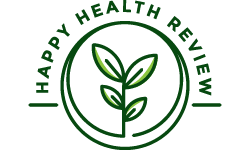Vitamins Women Need: The Best 14 Vitamins To Take
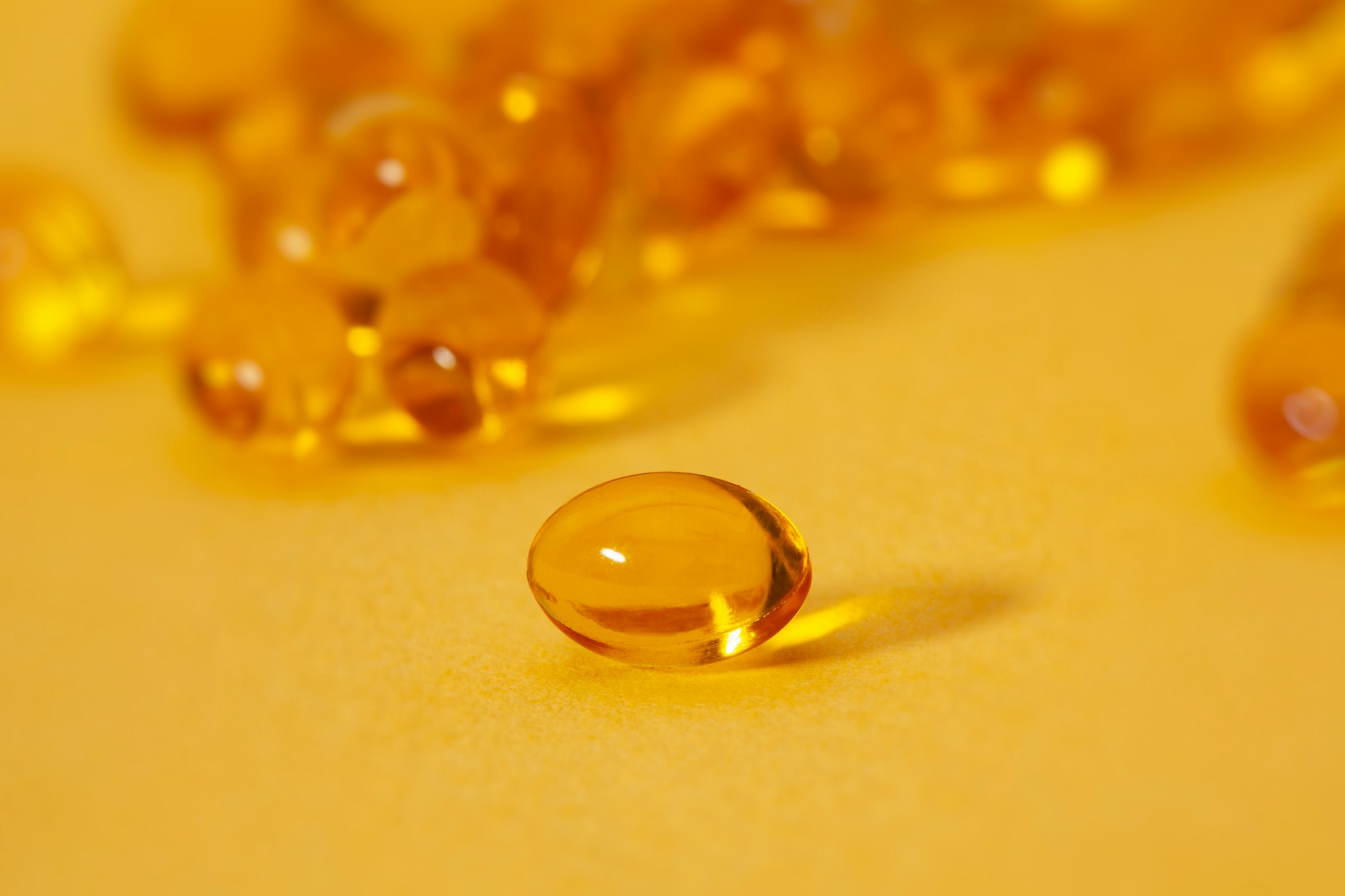
Although a well-balanced and healthy diet should always be maintained to promote optimal vitamin intake, it’s not always possible to get all of the vitamins you need through diet alone. Supplements can be good for filling in the gaps.
Women have different nutritional needs at different stages of their lives. For example, teenagers need different nutrients than postmenopausal women and pregnant and breastfeeding women need more specific nutrients than non-pregnant women.
More importantly, nutrient requirements may vary depending on your overall health status and lifestyle. Some women may not require vitamin supplementation to reach their recommended daily intake level.
Fat- and water-soluble vitamins are essential vitamins for critical body functions, which is why a lack of these vitamins can cause adverse health outcomes.
Water-soluble vitamins and food sources
There are several types of these nutrients, but they're all good for the body. But three of the — vitamins B6, B12, and folic acid — are especially important. Most vitamins are found in a wide variety of foods. Some are more available from animal foods, while others are more concentrated in plant foods.
Water-soluble vitamins play an important role in our bodies. The B vitamins are probably best known for their roles as energy producers, while vitamin C is probably best known for its role as an immune booster. However, these dietary supplements play important roles in many other important processes as well.
Vitamin B1 (Thiamin):Nature Made Vitamin B1

helps convert nutrients into energy. It is required for proper cellular health. Women who are pregnant, women on long-term diuretic medication, or women who have had bariatric surgery are at greater risk of thiamin deficiency. Vitamin B1: Wheat germ, pork, seafood, beans, rice, sunflower seeds.
Vitamin B2 (Riboflavin:)Nutricost Vitamin B2

Vitamin B2 is needed to produce energy and grow and develop. It also has anti-inflammatory properties. Women who are pregnant, breastfeeding, have an eating disorder, or are older are at a greater risk for vitamin B12 deficiency. Vitamin B2: Organ meats, fortified grains, dairy products, eggs, mushrooms, seafood, nuts, poultry, quinoa.
Vitamin B3 (Niacin): Nutricost Niacinamide
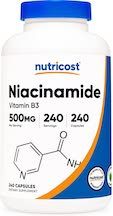
Vitamin B3 is essential for nervous system function, energy metabolism, and enzymatic reaction. Niacin deficiency isn't common in the U.S., but women who don't eat enough niacin-rich food may be at risk. Vitamin B3: animal products like organ meats, chicken, turkey, seafood, beef, rice, sunflower seeds, and pumpkin seeds.
Vitamin B5 (Pantothenic acid): NOW Supplements

Vitamin B5 is required for the synthesis of coenzyme A, an important component of many metabolic reactions. A deficiency in vitamin B5 is extremely rare. Vitamin B5: Organ meats, mushrooms, sunflower seeds, chicken, avocados, seafood, potatoes, eggs, yogurt, beef, broccoli, and chickpeas.
Vitamin B6 (Pyridoxine): Best Naturals Vitamin B6
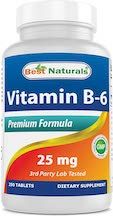
Vitamin B6 is important to macronutrient metabolism and immune function, and it helps produce neurotransmitters. Women with obesity and autoimmune diseases are more likely to have lower B6 levels than people without these conditions.
You need it to maintain your brain function and to help your body convert food into energy, which we call metabolism. It can be toxic when taken in large amounts, so your best bet for getting enough vitamin D is to eat foods that contain this nutrient. Vitamin B6: Chickpeas, organ meats, seafood, oats, chicken, potatoes, turkey, bananas, beans, avocado, and beef.
Vitamin B7 (Biotin):Biotin with Coconut Oil
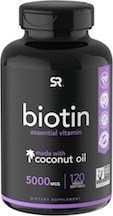
Vitamin B7 plays a key part in energy production and the control of oxidative stress. Women who are pregnant or who excessively use alcohol or certain medications may be more likely to have low Biotin levels. Vitamin B7: Organ meats, eggs, seafood, pork, beef, sunflower seeds, sweet potato, almonds, spinach.
Vitamin B9 (Folic acid): Nature Made Folic Acid
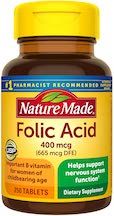
Vitamin B9 is needed to produce DNA, RNAs, red blood cells, protein, and neurotransmitters. A deficiency can be caused by inadequate dietary intake, malabsorption conditions, medication interactions, alcohol dependence, and other factors. Vitamin B9: Organ meats, spinach, beans, asparagus, brussels sprouts, avocados, broccoli, and mustard greens.
Vitamin B12: Vitamin B12 Gummy Vitamin
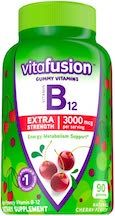
B12 is essential for neurological function and red blood cell and protein production. A deficiency can be caused by inadequate dietary intake or medical conditions, including autoimmune disease and malabsorption.
Vitamin B12 is important for metabolism and helps your body make red cells. You can get it in organ meats, seafood, cheese, eggs, fish (salmon), meat, milk, chicken, and yogurt. People who are older than 65, people with anemia (low red blood cell count), vegans, and vegetarians should talk to their healthcare provider about making sure they get enough iron supplementation.
Folate (folic acid): Jarrow Formulas Methyl B-12 & Methyl Folate
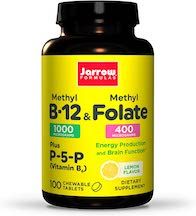
Folate helps build a strong brain and spinal cord. It also helps prevent cancer by making DNA and RNA, the basic building blocks of cells, which prevents the changes in DNA which can lead to cancer. Iron supplements are essential for building healthy red blood cells and preventing anemia. It's especially important for pregnant women because it helps prevent birth defects like Spina Bifida.
Folate is found in foods like spinach and leafy greens; asparagus; citrus fruits; melons; strawberries; fortified grains; legumes; chickpeas; black beans; kidney beans; eggs; and liver.
Vitamin C: Liposomal Vitamin C

C is an important nutrient for skin health. It helps protect against sun damage and boosts immunity. It aids in healing cuts and helps your body make new blood cells. It also increases the level of the brain chemical called noradrenaline, which makes you feel happier and calms you down.
Studies show that when we're stressed out, our levels of vitamin C decrease. Excessive smoking and drinking can increase the risk of vitamin deficiencies. Vitamin C: peppers, citrus fruits, kiwi, broccoli, strawberries, melon, cabbage, cauliflower, and potatoes.
Choline is a water-soluble nutrient often grouped with B Vitamins because of its similar functions in the body. Choline is not a vitamin; it’s a nutrient that’s found in both fat-and water-soluble forms. Like omega-3 fatty acids, it’s an essential nutrient for brain health, metabolism, and neurotransmitter synthesis. Choline needs to increase throughout pregnancy and breastfeeding.
Fat-soluble vitamins and food sources
Vitamin A (Beta-carotene): Bronson Vitamin A 10,000 IU
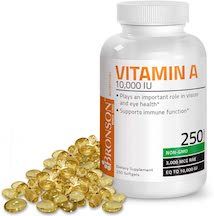
A is essential for healthy eyesight, immune function, cell growth, and fetal development. Women with Cystic Fibrosis and women in developing nations are at a greater risk for vitamin A deficiency. Preformed vitamin A is found mainly in animal foods like organ meat, cheese, and eggs. Provitamin A carotenoid is found in plant foods like cantaloupes, kale, papayas, peaches, pumpkin, red peppers, tomatoes, spinach, carrots, and sweet potatoes.
Vitamin D3: NatureWise Vitamin D3
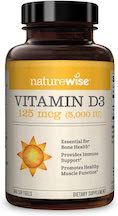
It may be called a "vitamin," but it works as a "hormone." Calcium and phosphorus are two important minerals for keeping bones healthy. If your body doesn't have sufficient vitamin D, it will pull calcium and phosphorus from your bone. Over time, this causes them to become thin and leads to conditions such as osteoporosis, a condition that puts you at risk for fracture.
Calcium is essential for strong bones, controlling blood sugar levels, insulin production, and immune health. Women with obesity, African-Americans, older women, and hospitalized women may be at the greatest risk for vitamin D deficiency. Vitamin D is only found naturally in a few foods, including fatty fish such as salmon and beef liver; certain foods like milk are fortified with it.
You can get your daily multivitamin by eating eggs and fish, especially sardines, salmon, and mackerel. Many middle-aged or older adults may need to take fortified foods or supplements
Vitamin E: Nature Made Vitamin E
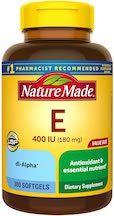
Vitamin E helps keep your cells healthy by acting as an antioxidant. It's also important for cell communication and blood vessel and immunity health. Vitamin E deficiency is uncommon but can occur in women who have conditions that cause fat malabsorption. Vitamin E: Wheat germ, sunflower seeds, safflower oil, almonds, hazelnut, peanut butter, spinach, broccoli, and cod liver oil.
Vitamin K: Vitamin K Triple Play
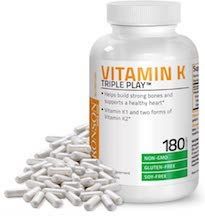
Vitamin K is important for bone health and healthy blood clotting and is required for these things. Vitamin K deficiency can happen in women with certain genetic conditions and may be caused by inadequate dietary intake or the use of certain medications.
It helps keep bones strong and helps blood clot for older people. The best food sources to eat include green leafy vegetables (like kale), soybean oil, broccoli, alfalfa, spinach, and fish oil.
Vitamins play many important roles in the body. Women have different nutritional requirements depending on their age and health conditions. Nutrient needs differ during a woman’s life stages. Pregnancy, alcohol consumption, and certain medical conditions can cause deficiencies.
Kids and teens
Girls ages 9 through 12 generally need smaller amounts of vitamin D than older teens and women because they're smaller in size. Teens over the age of 14 need the same multivitamin as adult women.
Research shows that teenage boys are more likely to be deficient in some nutrients than their female peers. For example, teenage boys are at a greater risk than teenage girls of developing a deficiency in vitamins D and Folate.
Vitamin A deficiency is also common in less developed countries among teenage girls. Pregnant teens are more likely to fail to meet the recommended daily intakes of several nutrients, including vitamin E and D.
Most teens consume diets low in nutrients, putting them at risk for nutritional deficiency, including during pregnancy, when their daily nutrients needs are highest. These are some of the reasons why prenatal vitamins and eating a nutritious diet whenever possible should be recommended for all pregnant adolescents.
Women ages 19–49
Women of child-bearing age are more likely to lack certain nutrients, including vitamin 6 and vitamin D supplements.
A study that included over 15,000 people revealed that nutrient deficiency risk, which includes deficiencies in B6 and Vitamin D, was most common among women ages 19–50.
Pregnant and breastfeeding women
Nutrient needs increase during pregnancy and breastfeeding to support fetal and maternal health. Pregnancy and lactation require greater amounts of certain key nutrients than usual.
For this reason, women who are pregnant or breastfeeding are at greater risk and should be taking a multivitamin for women. Up to 30% of pregnant women worldwide experience vitamin deficiencies. For example, researchers have estimated that between 18% and 84% of pregnant women worldwide are vitamin D deficient. Pregnant women should consider taking a prenatal vitamin for optimum nutrition.
More importantly, there is evidence suggesting that the current recommendations for daily vitamins, including vitamin D for pregnant women, are too low.
Recent research suggests that pregnant women may require about 4,000 IU of vitamin D supplement per day to maintain optimal levels, while breastfeeding mothers may require about 6,400 IU of vitamin D per daily dose.
Choline is another essential nutrient for fetal and maternal well-being. Most pregnant women in the united states aren't getting the critical nutrients. Many prenatal vitamins do not take the recommended 450 mg per day of choline for pregnant women.
Older women
Postmenopausal and elderly women are more likely to be deficient in vitamins A, C, D, K, B12, folate, B6, B1, and B2.
Older people often have inadequate dietary intakes, and take medications that may lower vitamin levels in the body. This increases their risk of developing one (or more) vitamin deficiencies.
Special considerations
Smoking and drinking excessively may lead to vitamin deficiencies due to inadequate intake of vitamins.
Certain medical conditions, including type II diabetes, autoimmune diseases, gastrointestinal conditions, and others, may increase the risk of developing deficiencies in certain vitamins. Studies also show that obese women are at greater risk of developing vitamin deficiencies, including B 12 and vitamin D.
Women who undergo bariatric surgery may be at an increased risk of developing vitamin deficiencies. African American women are at greater risk for vitamin D deficiency because they have higher levels of melanin, which blocks the ultraviolet light needed to produce vitamin D.
Lastly, vitamin deficiencies can be common among women with eating disorders and people who have dietary restrictions or follow a vegan diet.
Women’s nutrient needs change throughout their lives. Women who are at greater risk for nutrient deficiencies include those who have increased nutrient demands, inadequate nutritional intake, malabsorption issues, and more.
Final Thoughts
Women need adequate amounts of key vitamins for their health. Most multivitamins for women are found in many foods. Adequate intake can bridge the nutrient gaps by eating a well-balanced diet. However, some women, may not be able to meet their vitamin needs through diet.
Certain factors and circumstances — including age, pregnancy and lactation, medical conditions, medications, and lifestyle choices — increase a woman’s risk of vitamin deficiency.
Women who are either worried they might be at risk of developing vitamin deficiencies or want to optimize their vitamin intake should work closely with a healthcare professional for medical advice.
